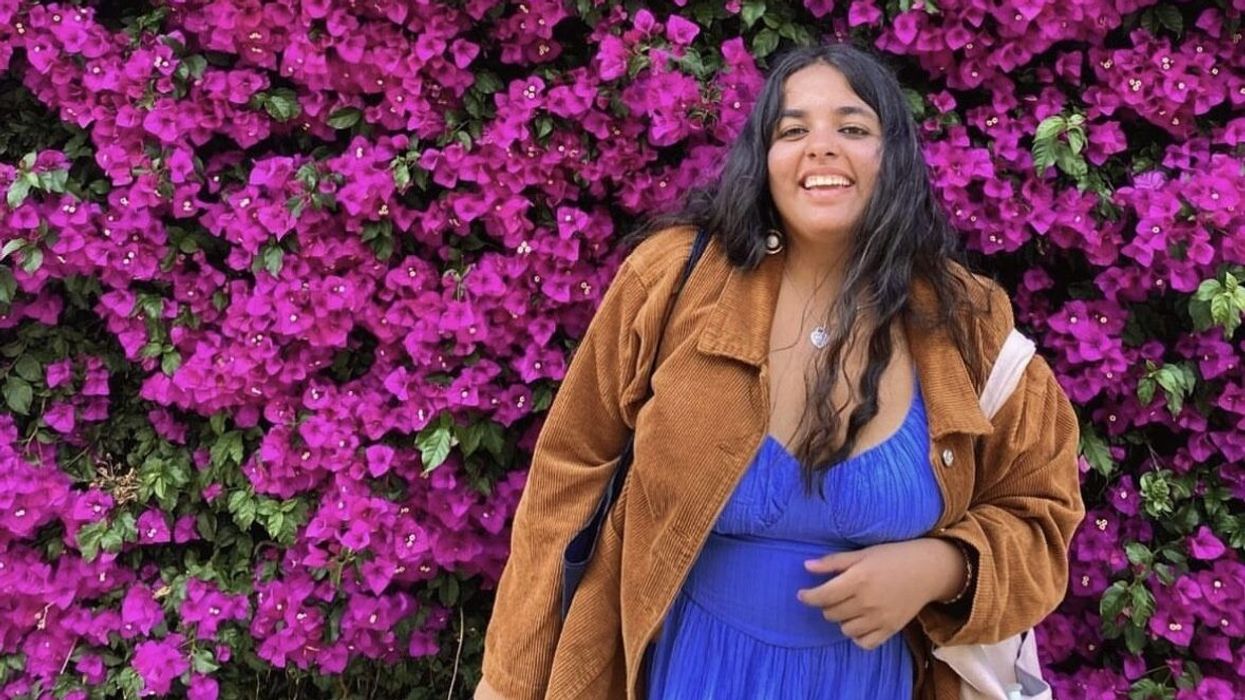Sanjana Thakur's short story Aishwarya Rai has been declared the overall winner of the 2024 Commonwealth Short Story Prize.
The 26-year-old writer from Mumbai was earlier declared the Asia region winner. The other regional winners included Julie Bouchard from Canada, Pip Robertson from New Zealand, Reena Usha Rungoo from Mauritius, and Portia Subran from Trinidad and Tobago.
The Commonwealth Foundation announced Sanjana's win at an online ceremony, presented by New Zealand’s former poet laureate Dr Selina Tusitala Marsh. Sanjana and the other four regional winners spoke about their writing and read short extracts from their stories.
Titled after famous Bollywood actress, Aishwarya Rai reimagines the traditional adoption story in reverse, in which a young woman seeks to hire an ideal mother.
The main character, Avni, chooses between possible mothers living in a local shelter.
The first one is too clean and the second looks like the real-life Aishwarya Rai. In her small Mumbai apartment with too-thin walls and a too-small balcony, Avni dreams of stepping into white limousines, and tries out different mothers from the shelter for the correct fit.
Chair of the judges, Ugandan-British novelist Jennifer Nansubuga Makumbi said, "In Aishwarya Rai, Sanjana Thakur employs brutal irony, sarcasm, cynicism and wry humour packaged in tight prose and stanza-like paragraphs to confront us with the fracturing of family and the self as a result of modern urban existence. No matter which city you live in, you’ll recognise the stress-induced conditions like insomnia, restless leg, panic attacks and an obsession with a celebrity kind of beauty, in this this case, Bollywood."
Rarely do we see satire pulled off so effortlessly, Makumbi added.
Singaporean short story writer O Thiam Chin, one of the judges, said Aishwarya Rai is "a provocative and mesmerising story from start to end".
He said the story with its hypnotic prose and lyrical magic realism, pulls readers into the compelling story of a young woman’s earnest but fumbling search for an ideal mother.
"The power of Sanjana Thakur’s story reminds us that the best of fiction peels back the hard skin of life and grants us the privilege of feeling every flutter and pulse of its raw, quivering heart," he added.
Sanjana, who currently lives in the US, described her story as ‘a Mumbai story’. She will bag a prize money of £5,000 and a two-year London Library membership.
"I've spent ten out of twenty-six years living in countries not my own. India, where I'm from, is simultaneously strange and familiar, accepting and rejecting. Writing stories is a way for me to accept that Mumbai is a city I will long for even when I am in it; it is a way to remake 'place' in my mind. I feel that the Commonwealth Short Story Prize offers that chance up to all of us: to be a writer who is from 'somewhere', to write from inside a legacy of colonialism and migration. I am so incredibly grateful to the prize for recognising that stories are not written in a vacuum," she said.
Sanjana observed that writing is so often thought of as a solitary act. "And yet, the truth is, the thing that has made the biggest difference to my work is community. It is my community — my teachers, family, and friends — whose support, belief, and love carries me through what is a deeply fulfilling but also frustrating and challenging practice.
"Now, the Commonwealth Foundation has given me this opportunity to be a part of their community, their lineage of incredible artists and people, and I could not be more grateful... I cannot express how wholly honoured I am to be the recipient of this incredible prize. I hope I continue writing stories that people want to read. Thank you, thank you, thank you!"
Sanjana has a degree in English and Anthropology from Wellesley College and is currently pursuing an MFA in Fiction at UT Austin's New Writers Project. Her short story ‘Backstroke’ was published in The Southampton Review.
The last time an Indian writer won this prize was Kritika Pandey in 2020.
There were 7,359 entrants worldwide and entries were submitted in many languages other than English. They include Bengali, Chinese, Creole, French, Greek, Malay, Portuguese, Samoan, Swahili, Tamil and Turkish.
The literary magazine Granta has already published the prize-winning stories of the 2024 Commonwealth Short Story regional winners, including Aishwarya Rai.




